#Louis Chude-Sokei
Text
Jay Glass Dubs - You Would Love Me Now - dream pop meets dub, which I suppose makes it trip hop?
3 notes
·
View notes
Photo
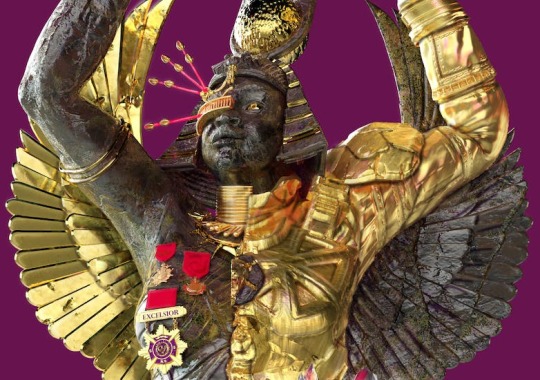
Afrofuturism Podcast, from Carnegie Hall.
"Take a journey to the world of Afrofuturism—an ever-expansive aesthetic and practice—where music, visual arts, science fiction, and technology intersect to imagine alternate realities and a liberated future viewed through the lens of Black cultures."
Episodes:
The Creator Has a Master Plan: An Afrofuturism Cypher, hosted by Sheree Renée Thomas
Afrofuturism and the Future of Democracy, hosted by Dr. Reynaldo Anderson
Space Muses in Chicagoland: Afrofuturism & Community, hosted by Ytasha Womack
Blacktronika Presents: Together, hosted by King Britt
Afrofuturism, Lee “Scratch” Perry, and Jamaican Music, hosted by Louis Chude-Sokei
Access podcast episodes here: https://www.carnegiehall.org/Explore/Watch-and-Listen/Afrofuturism-Podcast
11 notes
·
View notes
Text
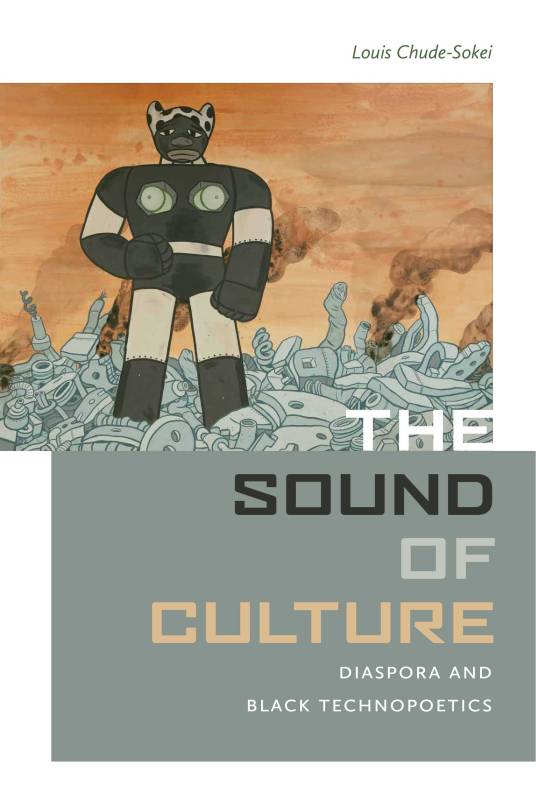
Louis Chude-Sokei posts an Afrofuturism playlist in this article.
43 notes
·
View notes
Link
Floating in a Most Peculiar Way by Louis Chude-Sokei https://amzn.to/3oMvAAD
https://bookshop.org/a/17891/9781328841582
0 notes
Text
This morning's article: Ijeoma Oluo's book review of "Floating in a Most Peculiar Way" by Louis Chude-Sokei
#the line about 'its so american to want a mans life tied up neatly with a bow at the end' hit me hard#articles#rivkah reads#book review#nonfiction#black nonfiction#black memoir#identity#racial identity#ethnic identity
7 notes
·
View notes
Quote
Granted, Harris can sometimes sound like an unreconstructed hippy and Glissant a New Age spiritualist; but both are very aware of the violence that both creates and sustains human cross-cultural interaction. They just seek to not privilege the violence and inequity as the end of the interaction, and they dare try to understand how productive those brutal interactions have also been. They challenge us not to reduce history to the violence of interaction; or at least, not without paying equal attention to the products of that violence. In fact, it was Glissant who made what I consider the single most controversial claim in the history of racial conversation in the Americas, if not the world. “Western thought,” he writes in Caribbean Discourse, “although studying it as a historical phenomenon, persists in remaining silent about the potential of the slave trade for the process of creolization.”[10] Few would publicly make such a statement, at least not in the United States or the Caribbean. He’s challenging us to engage the potential of slavery, to see slavery as the laboratory of modernity that we imply yet hesitate to fully attribute. And that a Black thinker (anyone, really; but particularly a product of chattel slavery) to suggest that slavery is being silenced for its productive contributions—that anything positive be publicly attributed to the enslavement of Black people—is remarkably contentious; yet it is the silent assumption upon which much thought and culture rests. Sadly, in terms of public articulation, the closest thing we have to that argument is that old tradition of salvific racism where whites tried to convince Blacks that they should be grateful to slavery for having brought them to the light of Christ or into the Western world
Louis Chude-Sokei - Blackness and Becoming: Édouard Glissant’s Retour (2018) [The Black Scholar, 48:4, 43-53]
2 notes
·
View notes
Text
Zajok a nappaliból – Traxelektor 2021 03

Tavaly tűnt fel Son of the Sun EP-jével Guedra Guedra كدرة كدرة, és az Anlo Kinka szerzemény bekerült az év végi Grande Traxelektorba is. A marokkói Abdellah M. Hassak képlete tulajdonképpen egy fordított fúzió, melyben bass, ghetto house, break, trap keveredik a berber és arab felvételekkel, meg egymással, meg ahogy fúj a szél. Szóval ez az egész nagyon impulzív, néha kaotikus, máskor meg annyira dallamos, hogy a The Arc of Three Colours úgy került a fülbemászóba, hogy a Traxelektorba nem fért be, ugyanis egy hétig nem tudtam tőle szabadulni, és a harmadik reggelen már nem jó ugyanazzal a dallammal ébredni a fejedben. Sűrűre vágott, váltásokkal teli abszolút korszerű, amit Guedra Guedra tol, a Vexillology pedig nagyon kimunkált debutlemez.

Két elsőalbumosunk van még. A Carcass Identity Matthieu Levet és Ernesto González kollaborációjának eredménye. Az azonos című album jellemzően középtempós, néha lightos, máskor sujtós (Spiraling Paradigm) pszichedeliával átitatott, fém keménységű műanyag elemekből precízen összeszerelve, mely ha megragad, nem hajlik el, nem enged. (...rossz hold kelt főől, mikor a carcasst ettem, rossz hold kelt főől.)
A Dekalb Works - a másik elsőalbumos – is kollaboráció, Austin Peru és Daniel Creahan kettőse. Néha a legjobb Neotropic pillanatokat idézi, absztrakt, belassult, de azért halad, nagyon jók a hangminták, és mindig van valamilyen tér, amibe ezek bekerülnek. A Duologue egy nagyon érett lemez, amiből sokat levon, hogy ha a számcímeket összeolvassuk az jön ki, hogy: a play or part of a play with speaking roles for only two actors.

A továbbra is névtelenség porába burkolózó Desert Sound Colony kijött idei első EP-jével. A brit arc egy olyan pók, aki a house, a garage, a breakbeat, a techno és az electro közé feszítette hálóját. A Synthetic Nixon EP tojásait a breakbeat-es szeglet mellé rakta jobbára. Most már negyedik éve az egyik legmegbízhatóbb dancefloorista, ezúttal a Two Rums Please a húzótrack. Igazi klubos arcvonás, hogy 17 EP/single és 7 év után sincs nagylemeze.
Magyar színekben versenyez ugyanebben a ligában a CT Kidobó, elsősorban electro műfajban. Egy két évvel ezelőtti interjúban Martin bevallotta, hogy IDM-et szeretne csinálni, és már tavaly az Exboyfrienddel, most pedig az újonnan megjelent Impulse & Inhibition Part 1. EP-vel ez kétszer is teljesült.
youtube
Anarchic Artificial Intelligence a címe az új Mouse on Mars lemeznek, amit a 2018-as Dimensional People-ról már ismert Dodo N’Kishi ütőssel, és Louis Chude-Sokei iró/tudóssal készítettek, kinek a hangját használták programozók segítségével egy az album elkészítéséhez fejlesztett beszédszoftverhez. Hogy pontosan mi történt AI és az egerek között, az nem teljesen tiszta számomra, de amit Werner mond a téma kapcsán, nagyon pozitív: Hagynunk kell, hogy az AI olyan tulajdonságokat fejlesszen ki, amelyek emberi tulajdonságok, mint például az empátia, a tökéletlenség vagy a zavar – na igen, ez a művész hozzáállása a robotikához, aki az emberszerűséget többre tartja, mint a hatékonyságot. Amúgy meg nemrég elővettem az Iaora Tahitit (1995) és két napig jött velem mindenhova annyira egyedi és tökéletes. Az AAI nagyon messze van a Tahititól (Tahitóthtól), térben és időben meg hangzásban is. Egyetlen dologban nem: Andy Toma és Jan St. Werner továbbra se hajlandó határt szabni zenei elképzeléseinek, mindig ott van bennük a meglepetés, dehát mint tudjuk az egerek pándimenzionális lények kitüremkedései az univerzumunkban, sz’al semmi meglepi.
Nathan Fake életműve olyan mint egy prizma, amin Nathan néha forgat egyet. Voltak időszakok, amikor olyan szögben állt, hogy egyenesen bazzta a fény a szememet (fülemet) – elnézést! – aztán akadtak kellemesebb korszakok is, főleg 2017-től említenék 3 szöget: Providence (és remixei), Sunder és Blizzards. Most pedig újabb fordítás után itt a Sanxenxo, ami minden NF védjegyet visel, és csak egy kicsit másabb az említetteknél, mégis az. Én látom a fejlődést, meg néha párhuzamokat Aphex Twin dallamosabb műveivel, meg ennek a zenei világnak a buktatóit is, de Nathan elég jól kerülgeti a gödröket. Aztán az a lemezt záró 1983 című ambient opus - azzal valahova nagyon mélyre nyúlt le a szerző.
youtube
Igazából ez a lemez tavalyi, de valójában idei, mert vinylen már tavaly létezett néhány éber kivételezett számára, de digitálisan most jött ki az Electronic Sound Recordings-nél. John Corrigan és Jon Drukman kajakkettese a The JDs második albumáról van szó, a remek című The Texas Chain Store Managerről (az első az Education volt 2010-ben) Na de kik ezeeek? Mert hogy John Corrigan ismertebb nevén Jack Dangers, ő meg ugye a Meat Beat Manifesto nevű jövőre 35 éves intézmény epicentruma. A másik János főleg Bass Kittens néven ismert, meg hogy az 1992-es The Ultraviolet Catastrophe pszeudójának Trip Harder című underground slágerét 6 év múlva Chemical Brothers-ék felmixelték és márványba vésték a híres Brothers Gonna Work It Out-ra (azon amúgy volt Meat Beat is a Mars Needs Women-nel). Ha most nekiállnék a The Texas Chain Store Manager kapcsán meat beat-ezni, az udvariatlanság volna, de akkor is az van, hogy ez egy kurvajó MBM lemez, mintha valami egészen új irányt talált volna Dangers, csak ez nem új irány, ez egy duett, azokból is az egyik legkellemesebb meglepi, mert az egész album repül, száguld, elszáll, geggel, van bass, van acid, van ebm meg napsütés, dehát ez Kalifornia. A lemez végén két brutál flessbekk is beüt, a Proust elején az Orb - Towers of Dub-jának nyitányán hallható Victor Lewis-Smith hangminta Haile Selassie-s parafrázisa Prousttal, a másik a Kratwerk Autobahnjá-nak merész felcicomázása.
Kraak ajánlásával jutott el hozzám a az UVB-76 saját kiadójánál az Okvlt-nál tavaly év végén megjelent Tales From The Far East válogatás-sorozat második etapja. Az anyag brutálisan erős, néhány igen magvas track-kel (Ended with Xavei - Black Veins), de a kedvencet a fülbemászóba tettem (Kӣr - Mandra). Megragadóan változatos lemez tényleg keleti ízekkel.

Intimate Immensity címmel jelent meg Valentina Magaletti és Tom Relleen duójának idei albuma. Érdekes, hogy nincsenek hosszú elszállások, minden track 4-5 perces, és ez most a fényesebb, úszosabb, sőt talán tavasziasan légiesebb világa a Tomagának, amit megtör néhány markánsabb mű (King of Naples, British Wildlife). Összességében nagyon kellemes, de nálam még mindig a Futura Grotesk (2014), The Shape of the Dance (2016), Greetings From The Bitter End (2017) a kedvenc Tomaga lemezek, mert azok jobban mutatták a szenzációs alkotópáros erényeit. Írtam ezt pár napja, viszont ahogy telik az idő, egyre jobban összeérik a lemez, és az, hogy kevésbé markáns, már nem is olyan fontos. Néha elég annyi, hogy az ember csak üldögél a napsütésben

Megjelenések:
Carcass Identity - Carcass Identity [2021, Phase Group][LP]
CT Kidobo - Impulse and Inhibition Pt.1 [2021, Zone][EP]

Dekalb Works - Duologue [2021, Where To Now][LP]
Desert Sound Colony - Synthetic Nixon [2021, Holding Hands][EP]
Guedra Guedra كدرة كدرة - Vexillology [2021, On The Corner][LP]
Mouse on Mars - AAI [2021, Thrill Jockey][[LP]

Nathan Fake - Sanxenxo [2021, Cambria Instruments][EP]
Scanner - Trawl [2021, Aquarellist][EP]
The JDs - The Texas Chain Store Manager [2021, Electronic Sound][LP]
Tomaga - Intimate Immensity [2021, Hands In The Dark][LP]
VA - Tales from the Far East Vol. 2 [2020, Okvlt][MC-Comp]

Traxelektor:
Spotify playlist
(53/80, 4:43/7:11)
Aktuális fülbemászók:
Guedra Guedra - The Arc of Three Colours
Kӣr – Mandra

96 Back & Special Request - Petrichor [Compassion, !K7]
AIR LQD & Abdullah Miniawy - How Do You Burry A Paperless Man [VA - Tales from the Far East Vol. 2, Okvlt]
Anthony Linell - Being Water [Winter Ashes, Northern Electronics]
Anthony Linell - The Final Words [Winter Ashes, Northern Electronics]
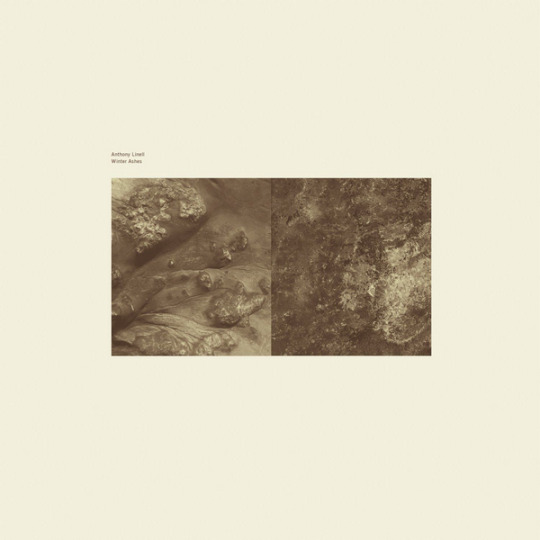
Big Yawn - Body Double (Jay Glass Dubs Refix) [No! Remixes, Research]
Big Yawn - Reflex (Sleep D Remix) [No! Remixes, Research]
Cabaret Voltaire - Skinwalker [Shadow Of Funk, Mute]
Carcass Identity - Freedom Principle [Carcass Identity, Phase Group]
Carcass Identity - Things to Forget [Carcass Identity, Phase Group]
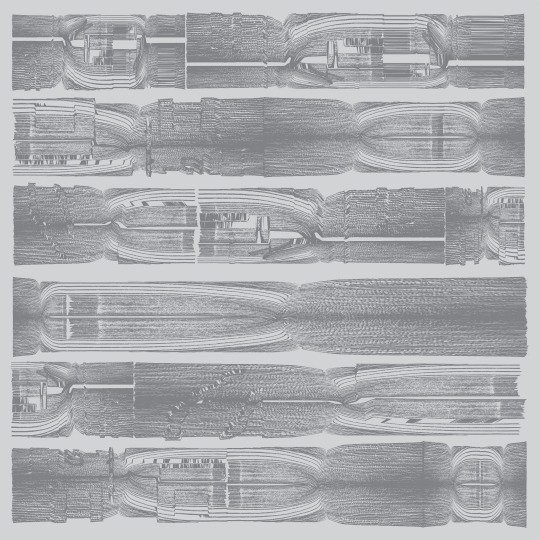
Christian Smith - Pressure Drop [VA - More Than Machine, Tronic]
CJ Bolland - The Demotic Script [VA - More Than Machine, Tronic]
CT Kidobó - Bipolar [Impulse and Inhibition Pt.1, Zone]
CT Kidobó - Death Of Postmodernism [Impulse and Inhibition Pt.1, Zone]
CT Kidobó - Paris [Impulse and Inhibition Pt.1, Zone]
Cyrk - Repetition [VA - More Than Machine, Tronic]
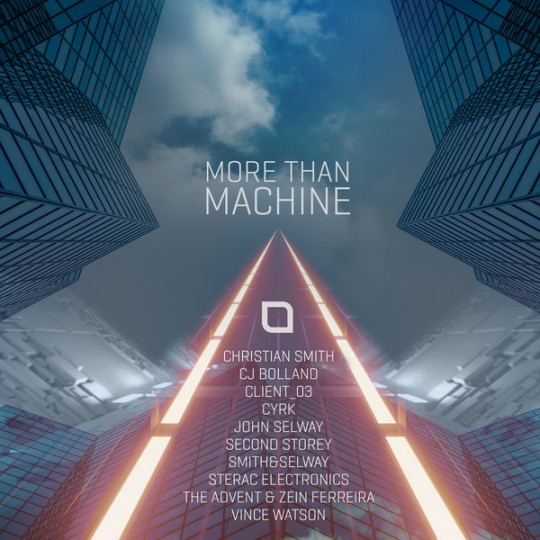
Deep Nalström - Low Gravity Ride [Esoteric Fantasy, Nummer Music]
Dekalb Works - for [Duologue, Where To Now]
Dekalb Works - of a [Duologue, Where To Now]
Dekalb Works - only [Duologue, Where To Now]
Dekalb Works - play [Duologue, Where To Now]
Desert Sound Colony - Lokus [Synthetic Nixon, Holding Hands]
Desert Sound Colony - ODA [Synthetic Nixon, Holding Hands]
Desert Sound Colony - Two Rums Please [Synthetic Nixon, Holding Hands]

Dom & Roland - Abbott & Costello [The Search For Meaning / Abbott & Costello, Dom & Roland Productions]
Eindkrak - Cordoba [VA - Tales from the Far East Vol. 2, Okvlt]
Ended with Xavei - Black Veins [VA - Tales from the Far East Vol. 2, Okvlt]
Exhausted Modern - Apathy Eats You Alive (Annechoic Remix) [Year of the Rat Remixes, Endless Illusion]
Exhausted Modern - Food of the Gods (Ayaz Remix) [Year of the Rat Remixes, Endless Illusion]
Exhausted Modern - Pineal Gland (Philipp Otterbach Mix) [Year of the Rat Remixes, Endless Illusion]
Forest Drive West - Phosphenes (Wata Igarashi Pressure Remix) [They Live Remixed, Midgar]
Forest Drive West - Ricochet (Felix K Reinterpretation) [They Live Remixed, Midgar]
Forest On Stasys - Ofrenda [Mantrum, Harmony]

Giant Swan - DYFLGOT [Do Not Be Afraid Of Tenderness, Keck]
Guedra Guedra - كدرة كدرة - 40' Feet [Vexillology, On The Corner]
Guedra Guedra كدرة كدرة – Complementariness [Vexillology, On The Corner]
Guedra Guedra كدرة كدرة - Seven Poets [Vexillology, On The Corner]
Guedra Guedra كدرة كدرة - When I Run [Vexillology, On The Corner]
HLM38 - Célébration du Coq [VA - Tales from the Far East Vol. 2, Okvlt]

Jeff Mills - Dancing Shadows [The Clairvoyant, Axis]
Jeff Mills - Questions Decisions and Consequences [The Clairvoyant, Axis]
Jeff Mills - Shadow With A Golden Aura [The Clairvoyant, Axis]
John Selway - Highest Order [VA - More Than Machine, Tronic]

Kmerl - Fire In Me [Fire In Me , ФАКТУРА]
Kmerl - The Arm [Fire In Me , ФАКТУРА]
Kӣr - Mandra [VA - Tales from the Far East Vol. 2, Okvlt]

Mouse On Mars - Go Tick [AAI, Thrill Jockey]
Mouse On Mars - New Life Always Announces Itself Through Sound [AAI, Thrill Jockey]
Mouse On Mars - The Latent Space [AAI, Thrill Jockey]
Mouse On Mars - Walking And Talking [AAI, Thrill Jockey]
Nathan Fake - Sanxenxo [Sanxenxo, Cambria Instruments]
Nathan Fake - Vanavond [Sanxenxo, Cambria Instruments]
O Yuki Conjugate - Forgotten Summer II [Artefacts, Kynant]

Paul Hierophant - Returned Signal (Carl Finlow Remix) [Utopian Dystopias - Part Three, Exalt]
Paul Hierophant - Saturn (Plant 43 Remix) [Utopian Dystopias - Part Three, Exalt]
Rene Wise & Rødhåd - 190209.2 [Untitled, WSNWG]
Rivet - Mag Mich [On Feather And Wire, Editions Mego]
Rivet - Ordine Kadmia [On Feather And Wire, Editions Mego]
Rivet - Pearling Woes [On Feather And Wire, Editions Mego]
Sacred Lodge - Un Hombre Que Camina [VA - Tales from the Far East Vol. 2, Okvlt]
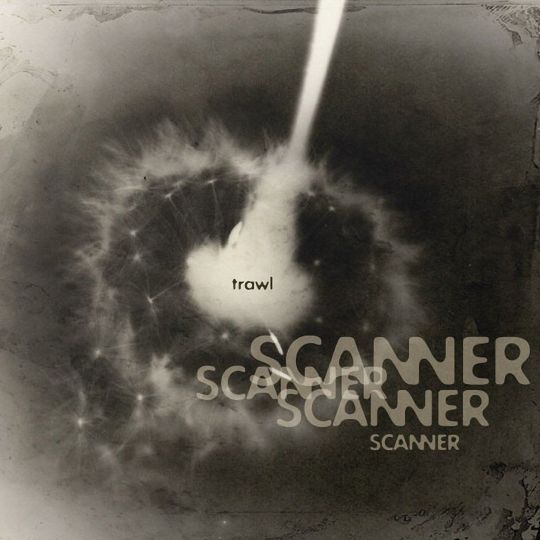
Scanner - Trawl, Disappearance [Trawl, Aquarellist]
Scanner - Walkaround [Trawl, Aquarellist]
Special Request - Compassion [Compassion, !K7]
Sterac Electronics - Reinstated [VA - More Than Machine, Tronic]
Sun Genam - Pinski4ex [Aexion, Something Happening Somewhere]

The Black Dog - Crookes For Life [Dubs: Volume 1 (Sheffield), Dust Science]
The Black Dog - Tram Backwards [Dubs: Volume 1 (Sheffield), Dust Science]
The JDs - Autobahn (Flavor-Aid Mix) [The Texas Chain Store Manager, Electronic Sound]
The JDs - Checkout! (Raving in the Self-Service Line Mix) [The Texas Chain Store Manager, Electronic Sound]
The JDs - Coin Star [The Texas Chain Store Manager, Electronic Sound]
The JDs - Kitty Litter [The Texas Chain Store Manager, Electronic Sound]
The JDs - Proust (Produce Aisle Mix) [The Texas Chain Store Manager, Electronic Sound]
The JDs - Store Detective [The Texas Chain Store Manager, Electronic Sound]

Tomaga - Idioma [Intimate Immensity, Hands In The Dark]
Tomaga - Intimate Immensity [Intimate Immensity, Hands In The Dark]
Tomaga - The King Of Naples [Intimate Immensity, Hands In The Dark]
Tomaga feat. Cathy Lucas - Very Never (My Mind Extends) [Intimate Immensity, Hands In The Dark]
youtube
Varuna - Avicennia [Mangrove Management, A Walking Contradiction]
Varuna - Culex Sitiens [Mangrove Management, A Walking Contradiction]
Varuna - Paleo-drainage Channels [Mangrove Management, A Walking Contradiction]
Wata Igarashi - Cylinder [New Dawn, Figure]

4 notes
·
View notes
Text
Exploring Reggae Music for Social Change
Recognizing music as a tool for educating people in society and its social relevance is what I will be discussing in this proposal. I will be exploring reggae music and its significance to the people of Africa in the socio-economic and political context. According to Chude-Sokei (2011, Pp. 78) “Reggae has been Africa’s most powerful musical advocate.” Historically, I will be drawing on the works of reggae artists such as Alpha Blondy and Lucky Dube to explore the impact of reggae music concerning the everyday social life of Africans. The practical research methodology I will employ in this inquiry will address issues such as educating the people through music to understand the need for democracy, equality, participation, collectivity, and performance to influence social justice. From this starting point, I suggest it is helpful to explore more in detail to analyse how reggae music can impact on social change.
The fundamental concern of my proposal is to demonstrate through my practical research project that reggae music can be used as a tool for education and social change, and not be seen as a piece of ordinary music. In short, it is maintained, arts and music can be used to change society and individuals for the better through education (Hanne and Varkøy (2020). In a broader sense of knowledge, music is a powerful tool in transforming lives and changing society through the artist engagement with the audience. Music supports the equitable outer truth of nature and social order and impact perception of reality (ION, 2011, Pp.219). Arguably, reggae music can ignite our inner thoughts to influence our emotions and actions concerning how policy and decision making processes by the government can impact social justice and socio-economic welfare.
The cultural and political influence of the root reggae genre is in no doubt immense contribution to my work as I propose to address key issues of political concern in Nigeria. My operating assumption is to use music as a means of education and advocacy to address socio-political concerns in the country. Reggae Artists explored socio-political issues that nobody dared to talk about previously in their song publicly: As noted, Alpha Blondy condemned police violence against apparent juvenile hoodlum in his song ‘Brigadier sabari’ (Pardon brigadier) during 1983 (Anne Schumann, 2015, Pp.343). My developing principles, therefore, are based on inspiration. Inspiration often provides the compelling strength to make the art captivating (Weintraub, 2003, Pp.123). Hence, my inspiration is drawn from artists such as Lucky Dube, Aplha Blondy and my drive for social change through empathy, and equality.
On the night of 14 April 2014, 276 young Christian girls were kidnapped in Nigeria. The 276 kidnapped schoolgirls from Chibok in 2014 are some of the thousands of people ‘Boko Haram’ had abducted over the years (The Guardian, 2017). The government in response to the issue claimed Boko Haram is an Islamic terrorist group. However, I hold a different opinion concerning these happenings in my work. For example, I stresses that, we want peace in Nigeria, is peace in the universe, and ‘Babylon’ shall not rise again with the gun, ‘Boko Haram’ shall not rise again with the gun. An equal share of the petroleum money will save our children, an equal share of the national cake, Lord, will save our girls. Distress for Citizens as suggested by ‘Lucky Dube’ is the usual folk that endure the poverty brought about by unproductive and corrupt governments. This is the coloration in Lucky Dube’s work in this study (Onyebadi, 2018, Pp. 13)
Addressing these socio-political issues, considering the concept of ethnocultural empathy will assist the government in recognizing the elements of social exclusion and emphasize them as a major threat to the socio-economic development of the nation. Rennalls (2020) defines that “This is the ability to take the perspective and share the feelings of a person from a different ethnic group and to communicate these shared experiences to them.” This is relevant considering the fact that a huge percentage of despute in Nigeria are rooted in ethnicity and religion (Adebayo, 2016, Pp. 373). Under these social circumstances, the effectiveness of ethnocultural empathy becomes a key component in promoting peace in the nation before any ethnic and religious affiliations.
Moreover, it’s significant to understand that, engaging my audience with an educative reggae sound piece accompanied by a music video will enhance advocacy on socio-political crisis whilst providing a friendly environment for entertainment. Notably, music can build friendships and peace where mistrust, misunderstanding, anger existed previously. Music provides people a sense of unification and togetherness (Pierce, 2015). Therefore, the playfulness that comes with entertainment is an added value to my work as the government, and individuals by listening to my music might find their sense of national solidarity and iron their differences to promote democracy, equality, social justice, peace and togetherness. Playfulness requires listening to the music and people deep (Strand, 2016).
In some contexts, the humanistic approach to economic intervention perspectives advocated for in my music might reach a vast majority of the audience and people in government to influence them to empathized and provide care and support for the vulnerable and marginalized Islamic population to redress the systematic and socio-economic inequalities in the country. In his song ‘The Hand that Giveth’ (1989), Lucky Dube explored the biblical command concerning caring for the needy to condemn the rich and influential for their rampant hypocrisy in grabbing from the poor instead of giving back to society (Onyebadi, 2018, Pp. 15). It is vital to note that this holistic approach from the Bible focuses on the core interests of giving to the poor as well as empathizing with the needy. These assertions by Lucky Dube (1989) support the early claim by Rennalls (2020) concerning the use of the ethnocultural empathy perspective.
In conclusion, the approach adopted and advocated for in this proposal is ultimately social justice in character as it fundamentally revolves around discussing the social and economic activities carried out by the government concerning its people. My reggae music and its accompanying video content tie violent crime such as kidnapping by Boko Haram to religious discrimination and socio-economic deprivation of marginalized Islamic youth by a predominately Christian government administration in Nigeria. Additionally, discussing issues related to discrimination and the government's interference in the delivery of social justice can be very challenging in Africa as it positions the artists against the politicians. However, considering my position as human rights and social justice activist, it will be rewarding to know that my music can contribute to effective social change. Arguably, reggae music plays an important role in changing society. You can discuss complex political issues in reggae music without hurting people to affect social change.
Word Count: 1,133
List of References
Rinholm, Hanne, and Øivind Varkøy. “MUSIC EDUCATION FOR THE COMMON GOOD?: BETWEEN HUBRIS AND RESIGNATION: A Call for Temperance.” Humane Music Education for the Common Good, edited by Iris M. Yob and Estelle R. Jorgensen, Indiana University Press, Bloomington, Indiana, 2020, pp. 40–53. JSTOR, www.jstor.org/stable/j.ctvxcrxmm.6. Accessed 18 Nov. 2020.
OLTEŢEANU, ION. “THE FORMATIVE FUNCTION OF MUSICAL INTERACTIONS WITHIN SOCIAL IDENTITY.” Geopolitics, History, and International Relations, vol. 3, no. 1, 2011, pp. 215–220. JSTOR, www.jstor.org/stable/26804857. Accessed 18 Nov. 2020.
Chude-Sokei, Louis. “When Echoes Return.” Transition, no. 104, 2011, pp. 76–92. JSTOR, www.jstor.org/stable/10.2979/transition.2011.-.104.76. Accessed 18 Nov. 2020.
Weintraub, L. (2003) “Making contemporary art; how contemporary artists think and work (Sourcing Inspiration)” Thames & Hudson, London. Available at: file:///C:/Users/USER/Downloads/ED53022B-Weintraub_Linda-Making_contemporary_art_how_conltemporary_artists_think_and_work-Sourcing_Inspiration-pp122-124%20(2).pdf. (Accessed: 2nd December 2020)
Kulungu, Mustapha. “Does Boko Haram Pose a Threat to the US?” Counter Terrorist Trends and Analyses, vol. 11, no. 2, 2019. JSTOR, www.jstor.org/stable/26627975. Accessed 7 Dec. 2020.
Rennalls, S. (2020) Creativity can help to heal Britain's divided society. Available at: https://www.theguardian.com/commentisfree/2020/nov/15/creativity-can-help-to-heal-britains-divided-society?CMP=Share_iOSApp_Other (Accessed: 7th December 2020).
The Guardian (2017) Boko Haram releases dozens of Chibok schoolgirls, say Nigerian officials. Available at: https://www.theguardian.com/world/2017/may/06/boko-haram-releases-dozens-of-kidnapped-chibok-schoolgirls (Accessed: 7th December 2020)
Schumann, Anne. “Music at War: Reggae Musicians as Political Actors in the Ivoirian Crisis.” Journal of African Cultural Studies, vol. 27, no. 3, 2015, pp. 342–355. JSTOR, www.jstor.org/stable/24758685. ( Accessed 14 Nov. 2020).
oseph Olusegun Adebayo (2016) The Impact of Peace Journalism Training
on Journalists’ Reportage of the 2015 Elections in Nigeria: An Action Research Case Study, Communicatio, 42:3, 361-377, DOI: 10.1080/02500167.2016.1216458 http://dx.doi.org/10.1080/02500167.2016.1216458
Pierce, Deborah L. “Redefining Music Appreciation: Exploring the Power of Music.” College Music Symposium, vol. 55, 2015. JSTOR, www.jstor.org/stable/26574401. Accessed 17 Nov. 2020.
Onyebadi, U. (2018) Political Messages in African Music: Assessing Fela
Anikulapo-Kuti, Lucky Dube and Alpha Blondy. Available at:
https://www.mdpi.com/2076-0787/7/4/129/htm# (Accessed: 8th December 2020)
Strand, Katherine. “The Infinite Game: Part Two.” Music Educators Journal, vol. 103, no. 2, 2016, pp. 15–16. JSTOR, www.jstor.org/stable/44678222. Accessed 27 Nov. 2020.
Ford, T. (2018) Ellen Johnson Sirleaf: The legacy of Africa's first elected female president. Available at: https://www.bbc.co.uk/news/world-africa-42748769 (Accessed: 20th December 2020)
Jose Romero Lopez (No Date) Alpha Blondy. Available at: https://www.pinterest.co.uk/Reggaeoneness/alpha-blondy/ (Accessed: 28th December 2020)
Reggae Ville (No Date) LUCKY DUBE. Available at: https://www.reggaeville.com/artist-details/lucky-dube/videos/video/lucky-dube-rototom-sunsplash-2005-full-show/ (Accessed: 28th December 2020)
Benjamin Hillion (2019) Lucky Dube. Available at: https://www.quora.com/Who-was-the-first-to-start-music-between-Lucky-Dube-and-Bob-Marley (Accessed: 28th December 2019)
By: Albert Apiw (7th December 2021)
Critical Arts Practice in Education
Goldsmiths University of London (Year 3)
2 notes
·
View notes
Photo
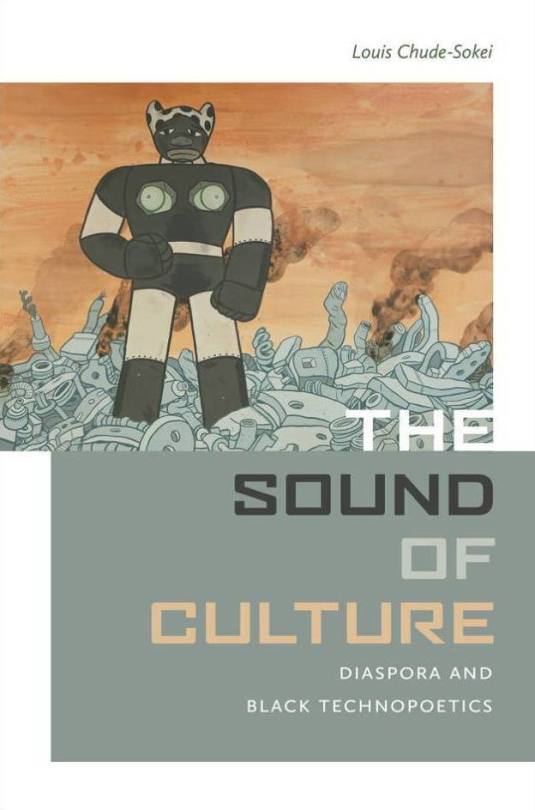
The Sound of Culture: Diaspora and Black Technopoetics (2015)
“The Sound of Culture explores the histories of race and technology in a world made by slavery, colonialism, and industrialization. Beginning in the late nineteenth century and moving through to the twenty-first, the book argues for the dependent nature of those histories. Looking at American, British, and Caribbean literature, it distills a diverse range of subject matter: minstrelsy, Victorian science fiction, cybertheory, and artificial intelligence.
All of these facets, according to Louis Chude-Sokei, are part of a history in which music has been central to the equation that links blacks and machines. As Chude-Sokei shows, science fiction itself has roots in racial anxieties and he traces those anxieties across two centuries and a range of writers and thinkers—from Samuel Butler, Herman Melville, and Edgar Rice Burroughs to Sigmund Freud, William Gibson, and Donna Haraway, to Norbert Weiner, Sylvia Wynter, and Samuel R. Delany.”
By Louis Chude-Sokei
3 notes
·
View notes
Text
2018 Reflections and Masterlist
2018 was a really good reading year for me but not the best. I had set myself a target of reading 100 books this year and I read 89- which is not too shabby! This was the year that I started out doing a job I hated, moved to a job I liked okay, and then finally went back to school to do my PhD. I moved across the Atlantic and settled in Boston and got stuck in- it’s been a big year.
Without further ado here are the books I read in 2018 arranged by rating!
2*
Practice of Diaspora: Literature, Translation, and the Rise of Black Internationalism by Brent Hayes Edwards
The Butcher’s Hook by Janet Ellis
Gilead by Marilynne Robinson
The Tower by WB Yeats
No Filter by Orlagh Collins
3*
Masters of the Dew by Jacques Romain trans by Langston Hughes
Maroon by Danielle Legros Georges
Satchmo Blows Up the World: Jazz Ambassadors Play the Cold War by Penny M Von Eschen
Radio Free Dixie: Robert F. Williams and the Roots of Black Power by Timothy B Tyson
Centering Woman: Gender Discourses In Caribbean Slave Society by Hilary Beckles
Mastery, Tyranny, and Desire: Thomas Thistlewood and His Slaves in the Anglo-Jamaican World by Trevor Burnard
What Was African American Literature? by Kenneth Warren
The Souls of Black Folk by WEB Du Boi
What Reconstruction Meant: Historical Memory in the American South by Bruce Baker
Narrative of the Life of Frederick Douglass by Frederick Douglass
The Legacy of Conquest: The Unbroken Past of the American West by Patricia Nelson
Kindred by Octavia E Butler
Lincoln in the Bardo by George Saunders
Landline by Rainbow Rowell
The Awakening by Kate Chopin
Roll of Thunder, Hear My Cry by Mildred D Taylor
Sing, Unburied, Sing by Jesmyn Ward
The Watchmaker of Filigree Street by Natasha Pulley
4*
Notes of a Native Son by James Baldwin
The Start of Me and You by Emery Lord
Carry Me Back: The Domestic Slave Trade in American Life by Steven Deyle
Gender and the Sectional Conflict by Nina SIlber
White Girls by Hilton Als
Cosmopolitanism: Ethics in a World of Strangers by Anthony Kwame Appiah
The New Jim Crow: Mass Incarceration in the Age of Colorblindness by Michelle Alexander
Class Notes: Posing As Politics and Other Thoughts on the American Scene by Adolph Reed
The Cambridge Companion to Frederick Douglass ed. Maurice Lee
The Anarchy of Empire in the Making of U.S. Culture by Amy Kaplan
The Fire Next Time by James Baldwin
The Road by Cormac McCarthy
Electric Light by Seamus Heaney
District and Circle by Seamus
The Goldfinch by Donna Tartt
Don’t Let the Pigeon Drive the Bus by Mo Willems
The Girl on the Train by Paula Hawkins
Children of Blood and Bone by Tomi Adeyemi
Attachments by Rainbow Rowell
The Beginning of the World in the Middle of the Night by Jen Campbell
5*
Giraffes Can’t Dance by Giles Andreae
The Day the Crayons Quit by Oliver Jeffers
Gateway to Freedom: The Hidden History of the Underground Railroad by Eric Foner
Girls and Dolls by Lisa McGee
Soul by Soul: Life Inside the Antebellum Slave Market by Walter Johnson
The Sound of Culture: Diaspora and Black Technopoetics by Louis Chude-Sokei
Never Caught: The Washingtons' Relentless Pursuit of Their Runaway Slave, Ona Judge by Erica Armstrong Dunbar
Consuming the Caribbean: From Arawaks to Zombies by Mimi Sheller
The Audacity of Hope: Thoughts on Reclaiming the American Dream by Barack Obama
Eleanor Oliphant Is Completely Fine by Gail Honeyman
Harry Potter and the Philosopher’s Stone by JK Rowling
Harry Potter and the Chamber of Secrets by JK Rowling
Harry Potter and the Prisoner of Azkaban by JK Rowling
Harry Potter and the Goblet of Fire by JK Rowling
The Magician’s Nephew by CS Lewis
The Lion, the Witch, and the Wardrobe by CS Lewis
The Horse and His Boy by CS Lewis
Prince Caspian by CS Lewis
The Voyage of the Dawn Treader by CS Lewis
The Silver Chair by CS Lewis
The Last Battle by CS Lewis
Playing in the Dark: Whiteness and the Literary Imagination by Toni Morrison
Philadelphia, Here I Come! by Brian Friel
The Burning House: How Jim Crow Fostered Diversity, Fueled Dissent, and Made Modern America by Anders Walker
Sula by Toni Morrison
100 Poems by Seamus Heaney
Death of a Naturalist by Seamus Heaney
The Prodigal by Derek Walcott
Girl With a Pearl Earring by Tracy Chevalier
Between the World and Me by Ta-Nehisi Coates
We Were Eight Years in Power by Ta-Nehisi Coates
Home Fire by Kamila Shamsie
Swing Time by Zadie Smith
The Underground Railroad by Colson Whitehead
Barracoon: The Story of the Last "Black Cargo" by Zora Neale Hurston
The Fire This Time: A New Generation Speaks about Race ed. Jesmyn Ward
Citizen by Claudia Rankine (so good I actually read it twice!)
Americanah by Chimamanda Ngozi Adichie
Homegoing by Yaa Gyasi
Winter by Ali Smith
Autumn by Ali Smith
Public Library by Ali Smith
The Secret History by Donna Tartt
Rebecca by Daphne Du Maurier
The Pearl Thief by Elizabeth Wein
Total: 89!
#booklr#year in review#bookblr#2018 reflections#2019#books#reading#goodreads#reading challenge#harry potter#bibliophile#litblr#studyblr#studying#literature#classics#the secret history#gradblr#grad school#bookworm
45 notes
·
View notes
Text
‘Too African for Jamaica, Too Jamaican for America, Too American for Nigeria’
‘Too African for Jamaica, Too Jamaican for America, Too American for Nigeria’
By Ijeoma Oluo
Feb. 2, 2021, 5:00 a.m. ET
FLOATING IN A MOST PECULIAR WAY
By Louis Chude-Sokei
I was about 10 when I found out that my whole life I’d been saying my name wrong. A friend of my father’s — an “uncle” — had come to town, and my white mom had dressed us up for the occasion in traditional Nigerian dress. My top and wrap skirt were of a gorgeous orange- and red-printed fabric, hand-sewn…
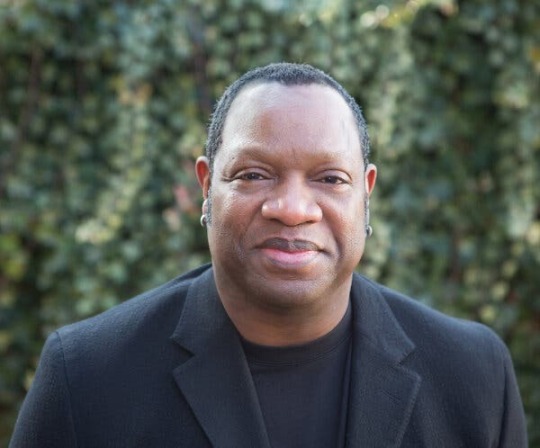
View On WordPress
0 notes
Photo
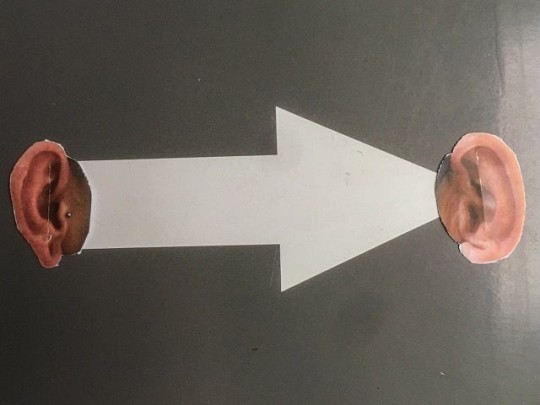
So honored and excited to be part of this sonic dialogue with amazing artists and friends 〰️ Thanks DAAD @daad_artists and Jan St Werner @fiepblattercatalogue for making this happen The Transnational Sound Initiative (TSI) is launching its first research hub in October. The initiative sees itself as a mutable, dialogical collective committed to the exploration of sound and, first and foremost, to the re-evaluation and redefining of our understanding of sound. Founded by Jan Werner (Mouse on Mars & Fiepblatter Katalog, Berlin), TSI operates in non-hierarchical, decentralized and interdisciplinary structures. Knowledge production is based on diversity, dialogue and the creative appropriation of technology. For the first project phase, Nina Emge, Ipek Görgün, Nicole L'Huillier, Kali Malone und Thomas Raab have been invited to Berlin or for digital fellowships from the DAAD Arts & Media Program. From October to December 2020 they will focus collaboratively on issues related to spatial acoustics and acoustic spaces, auditory psychology and cultural geography while drawing on their own various artistic strategies and research approaches. Also associated with the project are: Michael Akstaller (Academy of Fine Arts Nuremberg), Ian Condry (MIT), Marc Matter (Institut für Musik und Medien, RSH Düsseldorf), Louis Chude-Sokei (Boston University), At the end of this funding phase, the interim results of the exchange will be made available on a website. A public online workshop will also take place in November. Further information will follow shortly on our website. Photo: Paul Wick [This pic is just conceptual, I am most interested in non-cochlear listening as well] https://www.instagram.com/p/CGNCSBjpdt_/?igshid=1na63fjmzreoj
0 notes
Link
As a term, Afrofuturism appeared in the 1990s to describe an Afro-American artistic trend which had found expression in sci-fi, fantasy literature, music, the visual arts, comics and movies. Today, it is an inexhaustible field of academic, political, artistic and scientific investigation and production which incorporates elements from the black cultures drom the diaspora of West Africa, North America, Britain and the Caribbean, creating a Black Atlantic map.
The history and roots of the Afro-American community were systematically eradicated from the white, slave-trading consciousness. What started as the kidnapping of people from Africa between the 15th and 19th centuries developed into the post-colonial mindset of the contemporary world. The community's need to construct myths of origin, to recover their stolen past and reshape their futures found expression in sci-fi, music and technology.
Afrofuturism bridges past and future to liberate the present through musical, visual, narrative and political terms that transcend all and every historical limitation of race and gender. It constructs myths, conjecture and fantasy by linking the black experience to the techno-culture of the 20th and 21st centuries. It draws its ideas from the African cultural and philosophical tradition, the art produced by the African diaspora, and criticism of modernism and the post-colonial condition, and seeks to rewrite the Western narrative on colonialism, technology, race and time.
"Enter Afrofuturism" is a 6-day festival that maps Afrofuturism as a cultural and political movement through concerts, talks, workshops and film screenings.
The concerts will be held on the OCC's Main Stage and at Six d.o.g.s. and will feature the following artists: Sun Ra Arkestra, Actress, Dopplereffekt, Moor Mother, A Guy Called Gerald, Voltnoi, ATH Kids, Nkisi, Black Quantum Futurism, Black Athena.
The guest speakers at the lectures and open discussions will include: otolith group, Reynaldo Anderson, Louis Chude-Sokei, Rasheedah Phillips, Nkisi, Abdul Qadim Haqq, Tabita Rezaire, Erik Steinskog, Nathalie Mba Bikoro et al.
Moreover, in association with the Goethe Institut Athens and Johannesburg, short films and documentaries will be screened which explore Afrofuturism through the history of black music. Jazz, Detroit techno and the contemporary music produced in Africa's metropolises are some of the featured subjects in a collaboration that will also include the screening of virtual reality films.
Credits
Curated by: Voltnoi & Quetempo
Organized by: Pasqua Vorgia, Chara Mourla
Screenings organized by: Goethe-Institut Athen
The series of screenings is staged in collaboration with the Goethe-Institut Athen and the Goethe-Institut Johannesburg.
VR Screenings Powered by: Cosmote
#AfricanFutures#afrofuturism#onassis cultural centre#detroittechno#detroit techno#virtualrealityafrica
4 notes
·
View notes
Photo

:: fugitive algebras
Benitez Rojo, Antonio.The repeating island : the Caribbean and the postmodern perspective / Antonio Benitez-Rojo ; translated by James Maraniss. Durham, N.C: Duke University Press, 1992
Liu, Alan. Friending the Past: the Sense of History in the Digital Age. University of Chicago Press, 2018.
Betsy Wing. “A Tree as a Record: On Translating Mahagony by Édouard Glissant.” Small Axe. 1 November 2018; 22 (3 (57)): 123–128. doi: https://doi.org/10.1215/07990537-7249237
Parham, Marisa. “Sample, Strobe, Signal.” Debates in the Digital Humanities 2019, Apr. 2019. Print
Chude-Sokei, Louis. "Echoing the Echoes: Technopoetics in Dub." Small Axe, vol. 22 no. 1, 2018, pp. 181-190. Project MUSE, muse.jhu.edu/article/689379.
0 notes
Text
Bibliography
Belcher-Timme, Paxton, Patois: the language of Jamaica (2009) <https://debate.uvm.edu/dreadlibrary/Belcher-Timme.htm> [accessed 26 December 2018].
Chude-Sokei, Louis. Post-Nationalist Geographies: Rasta, Ragga, and Reinventing Africa. African Arts, vol. 27, no. 4, 1994, pp. 80–96. JSTOR, JSTOR, www.jstor.org/stable/3337324.
CHUDE-SOKEI, LOUIS. The Sound of Culture: Dread Discourse and Jamaican Sound Systems.” Language, Rhythm, and Sound: Black Popular Cultures into the Twenty-First Century, edited by Joseph K. Adjaye and Adrianne R. Andrews, (Pittsburgh: University of Pittsburgh Press, 1997)
Deleuze, Gilles and Guattari, Felix, Kafta: Towards a Minor Literature ( Minneapolis, London: University of Minnesota Press, 1986)
Ellis-Petersen, Hannah 'Sean Paul: 'Drake and Bieber do dancehall but don't credit where it came from'', The Guardian , 5 Sept 2016, p.https://www.theguardian.com/music/2016/sep/05/sean-paul-drake-kanye-dancehall-bieber.
Hall, Familiar Stranger, ed. by Bill Schwarz (Durham and London: Duke Univeristy Press, 2017)
0 notes
Quote
This miscegenatory birthing of American popular culture found its annunciation in the strange case of a wizened black slave woman and her passing for or being passed as a machine.
Chude-Sokei, Louis. “The Uncanny History of Minstrels and Machines, 1835-1923,” edited by Stephen Johnson, 104–32. Univ of Massachusetts Press, 2012.
4 notes
·
View notes